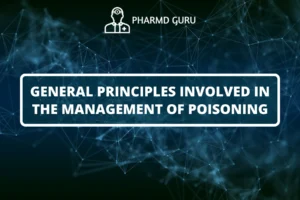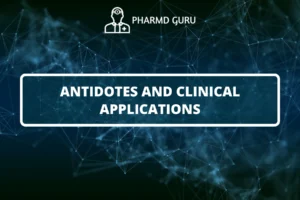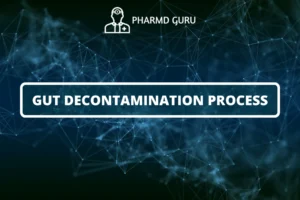Non-Steroidal Anti-Inflammatory Drugs are generally safe when used as directed, excessive ingestion or overdose can lead to NSAID poisoning, which can have serious consequences.
SCROLL DOWN TO THE BOTTOM OF THE PAGE FOR ACTUAL NOTES
TABLE OF CONTENTS:
- Introduction
- Non-Steroidal Anti-Inflammatory Drugs (NSAIDs)
- Clinical Symptoms of Acute NSAID Poisoning
- Management of Acute Poisoning
- 4.1. Immediate Actions
- 4.2. Medical Interventions
- 4.3. Supportive Care
1. Introduction
Non-Steroidal Anti-Inflammatory Drugs (NSAIDs) are commonly used medications for pain relief and reducing inflammation. While they are generally safe when used as directed, excessive ingestion or overdose can lead to NSAID poisoning, which can have serious consequences. This article discusses the clinical symptoms associated with acute NSAID poisoning and explores the recommended management strategies.
2. Non-Steroidal Anti-Inflammatory Drugs (NSAIDs)
NSAIDs are a group of medications that help reduce pain, inflammation, and fever. Common examples of NSAIDs include ibuprofen, naproxen, aspirin, and diclofenac. They work by inhibiting the production of certain chemicals in the body that cause pain and inflammation.
3. Clinical Symptoms of Acute NSAID Poisoning
Acute NSAID poisoning may present with the following clinical symptoms:
- Gastrointestinal Effects: NSAIDs can irritate the lining of the stomach and intestines, leading to symptoms such as nausea, vomiting, abdominal pain, and gastrointestinal bleeding. In severe cases, this can result in black, tarry stools or blood in the vomit.
- Kidney Damage: Excessive NSAID ingestion can cause kidney damage, leading to decreased urine output, swelling of the legs or ankles, and difficulty breathing.
- Central Nervous System Effects: Some individuals may experience dizziness, confusion, drowsiness, or seizures as a result of NSAID poisoning.
- Cardiovascular Effects: In rare cases, NSAID poisoning can cause cardiovascular problems, including high blood pressure, irregular heart rhythms, or heart attacks.
It is important to note that the severity of symptoms may vary depending on the type and amount of NSAID ingested.
4. Management of Acute Poisoning
4.1. Immediate Actions
In cases of acute NSAID poisoning, it is essential to take the following immediate actions:
- Call Emergency Services: Contact local emergency services or a poison control center immediately to seek professional medical guidance.
- Provide Information: Provide detailed information about the type and amount of medication ingested, if known, and the individual’s current symptoms.
4.2. Medical Interventions
Medical professionals may employ the following interventions for managing acute NSAID poisoning:
- Gastric Decontamination: Depending on the circumstances and timing, gastric decontamination techniques such as activated charcoal administration or gastric lavage may be considered to reduce further absorption of the NSAIDs.
- Monitoring and Laboratory Tests: Monitoring vital signs, such as blood pressure and heart rate, is crucial. Laboratory tests may also be conducted to assess kidney function, liver enzymes, and the extent of any gastrointestinal bleeding.
- Supportive Measures: Supportive care measures, including addressing gastrointestinal symptoms, maintaining fluid and electrolyte balance, and providing medications to manage seizures or other complications, may be necessary.
4.3. Supportive Care
Supportive care is essential in managing acute NSAID poisoning and may include:
- Gastrointestinal Protection: Medications to protect the gastrointestinal lining, such as proton pump inhibitors or H2 blockers, may be prescribed to reduce the risk of further damage.
- Fluid and Electrolyte Balance: Maintaining proper fluid and electrolyte balance is crucial to support organ function and prevent complications.
- Symptomatic Treatment: Addressing specific symptoms, such as providing anti-emetics for nausea and vomiting or administering anticonvulsants for seizures, as needed.
ACTUAL NOTES




